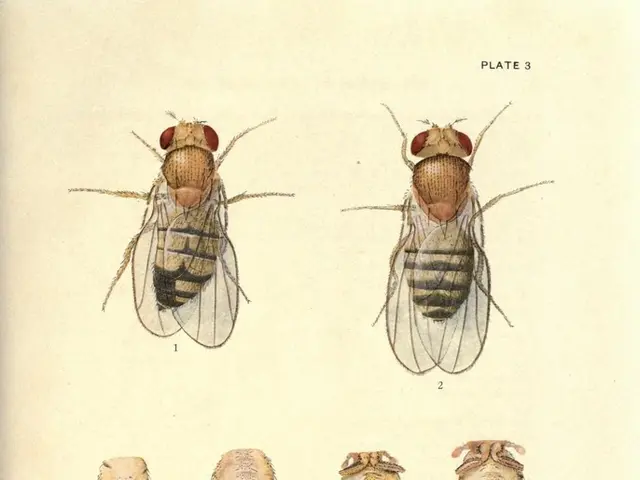Interactions with Symbicort: Other medications, alcohol, and various substances
In the realm of respiratory health, Symbicort, a popular inhaler used for treating asthma and chronic obstructive pulmonary disease (COPD), has been a go-to option for many. However, understanding the potential interactions between Symbicort and other substances is crucial for maintaining optimal health.
Symbicort, a combination of budesonide (a corticosteroid) and formoterol (a long-acting beta-2 agonist), primarily acts locally in the lungs with limited systemic absorption. Despite this, it can interact with a variety of drugs, though the available data does not list cannabis or cannabidiol (CBD) among these.
While no major or confirmed drug-drug interactions between Symbicort and cannabis or CBD have been established, there are potential indirect effects that warrant attention. Cannabinoids can affect drug metabolism through liver enzymes like CYP450, which may alter the levels of other medications metabolized by these enzymes, including Symbicort, which is metabolized by CYP3A4.
Cannabinoids can also affect respiratory function and immune response, potentially complicating respiratory conditions treated by Symbicort. Inhalation of cannabis might irritate airways, potentially affecting asthma or COPD control, which Symbicort treats. Both cannabis and Symbicort/formoterol may influence heart rate and blood pressure, so there might be additive cardiovascular effects, warranting careful monitoring.
It's essential to discuss cannabis or CBD use with a healthcare provider to monitor for possible indirect effects or interactions. If more detailed or personalized assessment is needed, consulting a pharmacist or pulmonologist familiar with your medical history would be advisable.
In other interactions, it's safe to use an albuterol inhaler with Symbicort, but it's not approved to treat asthma attacks. Eating grapefruit or drinking grapefruit juice during Symbicort treatment can increase the risk of side effects from Symbicort. On the other hand, there aren't any known interactions between Symbicort and alcohol, but drinking alcohol can increase your risk of side effects from Symbicort.
Before starting Symbicort treatment, it's crucial to inform your doctor about any corticosteroid drugs, beta-blockers, other long-acting beta-agonists (LABAs), other corticosteroids, drugs that weaken your immune system, drugs that increase your blood pressure, monoamine oxidase inhibitors (MAOIs), tricyclic antidepressants, certain HIV medications, certain antibiotics, certain diuretics, certain antifungal drugs, nefazodone, vigabatrin, desmopressin, dabrafenib, or echinacea that you take.
It's also recommended to discuss any vitamin product with a doctor or pharmacist before use. Using Symbicort with certain antifungals may increase your risk of side effects of Symbicort, and the combination of caffeine and Symbicort can increase the risk of heart-related side effects from Symbicort.
To prevent interactions with Symbicort, it's important to let the doctor and pharmacist know if you drink alcohol or use cannabis, tell them about any other medications, supplements, herbs, and vitamins, create a medication list, read the Symbicort label and other included materials, and take the medication exactly as prescribed.
In conclusion, while no major interactions between Symbicort and CBD or cannabis have been confirmed, it's crucial to exercise caution and discuss any use with a healthcare provider to monitor for potential indirect effects or interactions.
- Healthcare deciders should be aware that Symbicort, a drug used for treating asthma and chronic obstructive pulmonary disease (COPD), can interact with a variety of medical-conditions and chronic-diseases, including those that affect respiratory functions and immune responses.
- As cannabinoids can affect drug metabolism through liver enzymes like CYP450, and may potentially alter the levels of other medications such as Symbicort, discourse with a healthcare provider about cannabis or CBD use is essential.
- Since inhalation of cannabis might irritate airways, potentially affecting asthma or COPD control, it's recommended to discuss cannabis use with a healthcare provider, especially when under treatment with Symbicort.
- In the realm of health-and-wellness, maintaining optimal health requires understanding the potential interactions between Symbicort and other substances, including cannabis and CBD, to avoid any complications.




